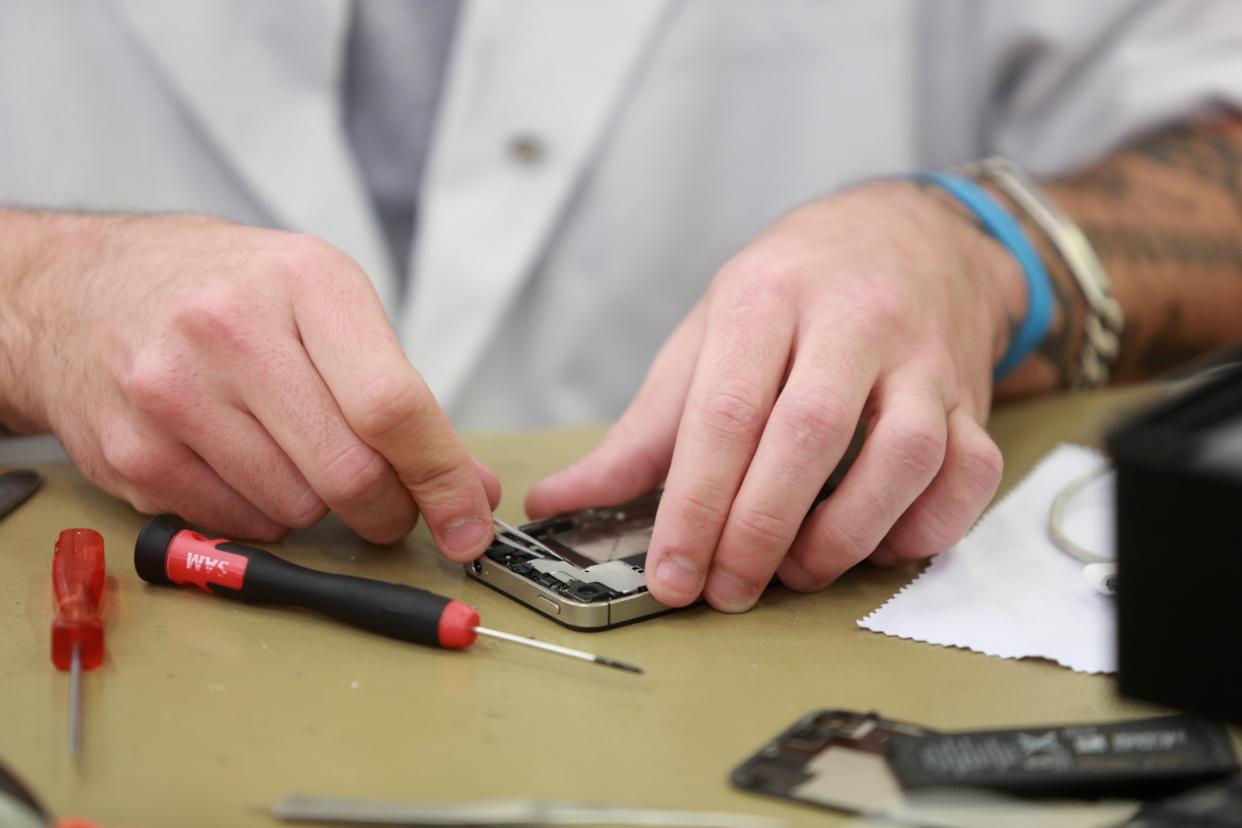Phones and laptops will be easier to repair after EU vote

The European Parliament has voted in favour of establishing stronger “right to repair” rules, which would make it easier to fix broken devices and reduce e-waste.
“To be sustainable, products must be repairable, so that they can remain on the market for as long as possible. It is time to stamp out practices which prevent or hinder product repairs,” the resolution stated.
“On average, 70 per cent of Europeans would prefer to repair rather than replace a faulty product. However, sellers still tend to be much keener on product replacement.”
It also aims to put an end to what it calls “premature product obsolescence”, penalising companies whose products are unsustainable.
It highlights the use of local, independent repairers, making sure that they have access to spare parts for fixing devices, as well as encouraging consumers to make home repairs.
It is “unacceptable that intellectual property mechanisms make carrying out product repairs the prerogative of the designer or distributor,” the resolution stated, while also criticising digital devices which might implement software updates that “trigger obsolescence”.
The resolution was voted for with 395 in favour and 94 against; 207 voters abstained.
“This is a huge win for consumers across Europe. This vote will set in motion a wave of new repair-friendly policies, from repair scores at retail to product longevity disclosures,” said Matthias Huisken, Director of Advocacy for iFixit Europe, which offers “repairability scores” for products. This is something the European Parliament approved in 2017 before and was reinforced in this vote.
“This vote shows that right to repair measures are backed by opinion polls but also by the European Parliament. The European Commission now needs to take this momentum and move forward swiftly in 2021 on a EU-wide repairability score for all electronic devices and repairability rules for computers,” said Chloe Mikolajczak, EU campaigner for the Right to Repair.
Repairability is an issue for smartphone companies like Apple and Samsung. In its teardown, iFixit rated the iPhone 12 and iPhone 12 Pro averagely with regards to their repairability. It praised the display and battery replacement methods, but criticised the glass on the front and back that means every component would need to be removed in the event of a drop.
Samsung’s Note 20 range fared worse, with iFixit supporting its modular componentsthat can be replaced independently, but decried the battery replacement and its expensive and “poorly prioritized” screen.
Although the UK is no longer in the European Union, the UK’s manufacturing standards will necessarily have to match those of the 27 nation bloc, in order for any trade to continue.
Read More
AirPods Pro can start crackling or fail to work properly, Apple says
Apple brings iPhone repair service to Europe
EU adopts rules to promote repair of household products and cut waste


